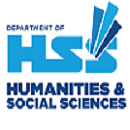


Gendered Belonging: Women and Work in Post-Partition Kolkata
Date: Friday, March 21, 2025
The Department of Humanities and Social Sciences at IIT Jammu organized a workshop as part of the eighth chapter of the 'Manthan Series,' titled “Gendered Belonging: Women and Work in Post-Partition Kolkata,” on March 21, 2025. The event featured Dr. Debjani Sengupta, an Associate Professor at the University of Delhi, as the resource person. The workshop aimed to explore the socio-economic and political challenges faced by refugee women in post-Partition Kolkata, emphasizing how displacement reshaped their roles in society.
The event began with a brief inauguration that set the stage for the discussions to follow. In the first session, Dr. Sengupta addressed the gendered impact of economic migration. She explained how women, previously confined to domestic roles, were compelled to seek employment in unfamiliar urban settings, competing with men in industries such as mills, factories, and offices. This shift, she argued, led to a redefinition of modernity for these women, challenging established societal norms.
Dr. Sengupta drew upon literary and cinematic representations to illustrate her points, discussing works like "Meghey Dhaka Tara" by Shaktipada Rajguru and "Bwadwip" by Sabitri Roy. These pieces vividly depict the struggles and resilience of refugee women in the post-Partition era. She emphasized how these narratives provide crucial insights into the lived experiences of displaced women, blending historical and moral dimensions with personal stories.
The second session featured an engaging interaction between Dr. Sengupta and the participants, allowing attendees to discuss the broader implications of gendered displacement. The discussion explored how refugee women not only redefined labor dynamics but also reshaped familial and social structures. Participants actively engaged in conversations about the intersections of gender, work, and migration, drawing parallels between historical displacement and contemporary issues faced by migrant women today.
The event successfully provided a platform for critical discussions on gender, displacement, and economic mobility, fostering a deeper understanding of the challenges faced by women in post-Partition Kolkata. Dr. Sengupta’s insights shed light on the resilience of these women, their struggles for survival, and their role in shaping the socio-economic fabric of the city. The session concluded with closing remarks, encouraging further academic inquiry into the themes discussed.

